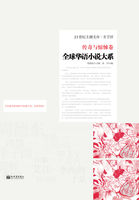Editor in continuation:
Every one who has read at all is familiar with the immortal panegyric of the great Edmund Burke upon Marie Antoinette. It is known that this illustrious man was not mean enough to flatter; yet his eloquent praises of her as a Princess, a woman, and a beauty, inspiring something beyond what any other woman could excite, have been called flattery by those who never knew her; those who did, must feel them to be, if possible, even below the truth. But the admiration of Mr. Burke was set down even to a baser motive, and, like everything else, converted into a source of slander for political purposes, long before that worthy palladium of British liberty had even thought of interesting himself for the welfare of France, which his prophetic eye saw plainly was the common cause of all Europe.
But, keenly as that great statesman looked into futurity, little did he think, when he visited the Queen in all her splendour at Trianon, and spoke so warmly of the cordial reception he had met with at Versailles from the Duc and Duchesse de Polignac, that he should have so soon to deplore their tragic fate!
Could his suggestions to Her Majesty, when he was in France, have been put in force, there is scarcely a doubt that the Revolution might have been averted, or crushed. But he did not limit his friendship to personal advice. It is not generally known that the Queen carried on, through the medium of the Princesse de Lamballe, a very extensive correspondence with Mr. Burke. He recommended wise and vast plans; and these, if possible, would have been adopted. The substance of some of the leading ones I can recall from the journal of Her Highness and letters which I have myself frequently deciphered. I shall endeavour, succinctly, to detail such of them as I remember.
Mr. Burke recommended the suppression of all superfluous religious institutions, which had not public seminaries to support. Their lands, he advised, should be divided, without regard to any distinction but that of merit, among such members of the army and other useful classes of society, as, after having served the specified time, should have risen, through their good conduct, to either civil or military preferment. By calculations upon the landed interest, it appeared that every individual under the operation of this bounty would, in the course of twenty years, possess a yearly income of from five to seven hundred francs.
Another of the schemes suggested by Mr. Burke was to purge the kingdom of all the troops which had been corrupted from their allegiance by the intrigues growing out of the first meeting of the Notables. He proposed that they should sail at the same time, or nearly so, to be colonized in the different French islands and Madagascar; and, in their place, a new national guard created, who should be bound to the interest of the legitimate Government by receiving the waste crown lands to be shared among them, from the common soldier to its generals and Field-marshals.
Thus would the whole mass of rebellious blood have been reformed. To ensure an effectual change, Mr. Burke advised the enrolment, in rotation, of sixty thousand Irish troops, twenty thousand always to remain in France, and forty thousand in reversion for the same service. The lynx-eyed statesman saw clearly, from the murders of the Marquis de Launay and M. Flesselles, and from the destruction of the Bastille, and of the ramparts of Paris, that party had not armed itself against Louis, but against the throne. It was therefore necessary to produce a permanent revolution in the army.
[Mr. Burke was too great a statesman not to be the friend of his country's interest. He also saw that, from the destruction of the monarchy in France, England had more to fear than to gain. He well knew that the French Revolution was not, like that of the Americans, founded on grievances and urged in support of a great and disinterested principle. He was aware that so restless a people, when they had overthrown the monarchy, would not limit the overthrow to their own country. After Mr. Burke's death, Mr. Fox was applied to, and was decidedly of the same opinion. Mr. Sheridan was interrogated, and, at the request of the Princesse de Lamballe, he presented, for the Queen's inspection, plans nearly equal to those of the above two great statesmen; and what is most singular and scarcely credible is that one and all of the opposition party in England strenuously exerted themselves for the upholding of the monarchy in France. Many circumstances which came to my knowledge before and after the death of Louis XVI. prove that Mr. Pitt himself was averse to the republican principles being organized so near a constitutional monarchy as France was to Great Britain. Though the conduct of the Duc d'Orleans was generally reprobated, I firmly believe that if he had possessed sufficient courage to have usurped the crown and re-established the monarchy, he would have been treated with in preference to the republicans. I am the more confirmed in this opinion by a conversation between the Princesse de Lamballe and Mirabeau, in which he said a republic in France would never thrive.]
There was another suggestion to secure troops around the throne of a more loyal temper. It was planned to incorporate all the French soldiers, who had not voluntarily deserted the royal standard, with two-thirds of Swiss, German, and Low Country forces, among whom were to be divided, after ten years' service, certain portions of the crown lands, which were to be held by presenting every year a flag of acknowledgment to the King and Queen; with the preference of serving in the civil or military departments, according to the merit or capacity of the respective individuals. Messieurs de Broglie, de Bouille, de Luxembourg, and others, were to have been commanders. But this plan, like many others, was foiled in its birth, and, it is said, through the intrigues of Mirabeau.















